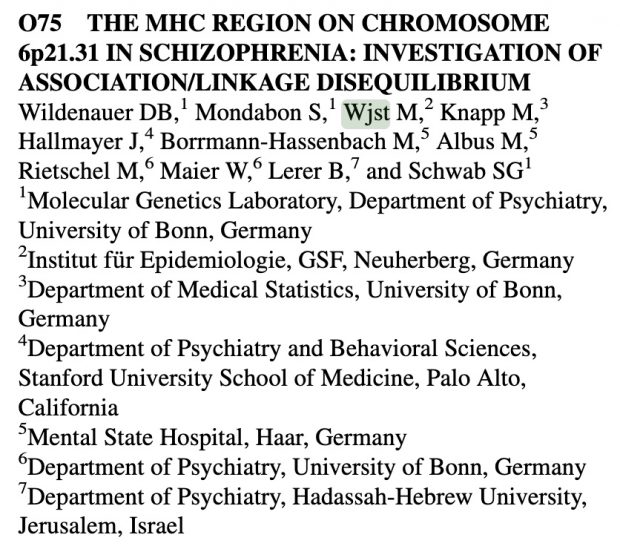Google showed me today a long forgotten abstract. Although I am not an expert in schizophrenia we collaborated two decades ago on this particular chromosomal region.
What is even more remarkable is the challenging keynote of the Xth World Congress of Psychiatric Genetics in The Palais des Congre ́s Brussels, Belgium October 9 –13, 2002 by Irving Gottesman [+2016], the father of epigenetics in psychiatry. He wrote there
We cannot escape the history of our field and are constantly guided today by the accumulation of facts with either positive or negative valences from our past. But when did the clock start—with the domestication of animals, with Galton’s musings and amoral passion for data collection about individual differences in behavior, or with the initially objective scientizing of Mendelism applied to schizophrenia but ending with a Nazi-tainted albatross around the neck of psychiatric genetics. In regard to the long quest for the distal and genetic (partial) causes of mental diseases, the conclusion that both genetic and environmental factors, none yet known in detail, provide the distal causes of mental disorders—that statement is too general to be of use to making further progress. What is needed is a confrontational approach based on evidence collected from competing ‘schools of thought’, and then reconciliation before some kind of omniscient and impartial Science Court.
I couldn’t agree more. What is needed is a confrontational approach based on evidence collected from competing ‘schools of thought’, and then reconciliation before some kind of omniscient and impartial Science Court.
